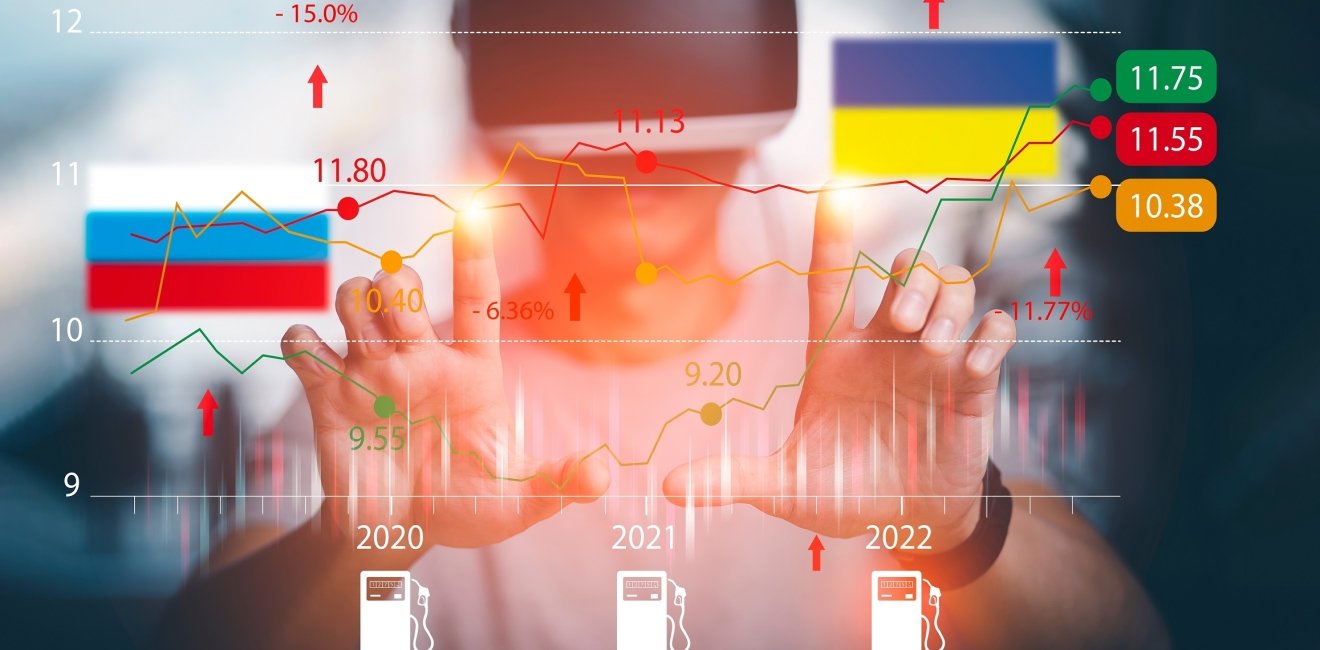
A blog of the Kennan Institute
BY ANDRIAN PROKIP
After Russia unleashed a full-scale war against Ukraine on February 24, Western countries, and particularly the EU, had to grapple with their deep dependence on Russian energy supplies, which had become an obstacle to the immediate imposition of sanctions. Germany’s minister of the economy Robert Habeck said it was “stupid” to have let the country become dependent on Russia for about half its gas supplies. Current German president and former foreign affairs minister Frank-Walter Steinmeier said his earlier strong support for Nord Stream 2, another Russian gas pipeline, was a mistake.
Today the EU is too weak to immediately punish and contain Russia through energy sanctions because of its deep energy dependence. Gazprom announced its intent to halt supplies to Poland and Bulgaria in late April, a threat the president of the European Commission, Ursula von der Leyen, said amounted to energy blackmail on the part of the Kremlin.
Ironically, everything happening today might not have happened had the West mounted a more robust response to Russia’s aggression against Ukraine in 2014 and had the West realized at a much earlier date that the Kremlin traditionally uses Gazprom and other energy assets as energy weapons.
In 2014 Russia annexed Crimea and unleashed the war in the Donbas, backing and arming separatists. This disruption of the post-World War II geopolitical arrangement shocked the West and raised serious concerns regarding the EU’s significant energy reliance on Russia. Russia’s aggression in the Donbas contributed to the suspension of Russian energy expansion to Europe. Later in 2014 the South Stream pipeline project, a 63 bcm capacity pipeline that would have gone under the Black Sea to Europe, bypassing Ukraine, was canceled.
In early 2015 the European Commission published a Framework Strategy for a Resilient Energy Union, which called for making the EU stronger in terms of energy security. Russia is mentioned only once in the document: “The EU will consider reframing the energy relationship with Russia based on a level playing field in terms of market opening, fair competition, environmental protection, and safety, for the mutual benefit of both sides.” As an alternative, the strategy planned to expand the EU’s energy partnership with other countries.
But reality took over very soon, and the hiccup in Russia’s increasing energy dominance in Europe was temporary. In September 2015, Gazprom and five European energy companies signed a deal on the construction of Nord Stream 2, and in October 2016 a deal was struck on Turk Stream, which was just a reincarnation of the South Stream pipeline but with half the capacity. Some European countries strongly opposed Nord Stream 2, especially Poland. But the EU turned out not to be united, and Germany, the strongest supporter of the project, achieved its goal.
These pipeline agreements did not contribute to the EU’s energy security, and the share of Russian gas supplies did not decrease. And now even former Russian energy enthusiasts are deeply concerned about this dependence.
It is hard not to agree with Turkish president Recep Tayyip Erdoğan, who recently said that a stronger Western response to the invasion of Crimea could have averted the Russia-Ukraine war. But Russia’s use of energy as a weapon started long before the conventional war in 2014.
In 2008 Georgia and Ukraine applied for an action plan to join NATO; the war in Georgia was launched shortly thereafter. On August 12, 2008, Poland's president Lech Kaczyński, on a visit to Georgia’s capital, Tbilisi, guessed at Russia’s war plans when he said, “Today Georgia, tomorrow Ukraine, the day after tomorrow—the Baltic States and later, perhaps, the time will come for my country, Poland.” The Russo-Georgian War was followed by a gas war at the turn of 2008–2009 when Russia tried to persuade the EU that Ukraine was not a reliable energy partner as a way to justify building new gas pipelines that would bypass Ukraine.
President Kaczyński was right about Ukraine being Russia’s next target. Less than two years after he spoke out publicly, he died when an airplane carrying him, his wife, and dozens of top Polish officials crashed on approaching Smolensk Air Base in Russia. Polish authorities blamed Russia for interference and bringing down the plane.
The mistakes the EU has made over the past two decades must now be rectified: Europe must refuse Russian energy supplies on an expedited basis to contain the Kremlin's aggression. More than half of Russia’s export revenues came from energy last year and, if not reined in, are expected to rise by 30 percent this year. This bloody money is financing the killing of civilians and an aggressive imperial policy. And the money the EU has paid Russia for energy supplies vastly exceeds the amount of military and financial spending by the EU on aid to Ukraine since the war began: it is 35 times more, according to the EU’s High Representative Josep Borrel. Since the start of the invasion, the world has funded Putin’s war to the tune of €63 billion—the estimated value of Russia’s fossil fuel exports since February 24, of which the EU accounts for about 71 percent.
Past mistakes must be fixed now. Europe must review its energy policy and relations with Russia as soon as possible and get in place firm, effective restrictions and bans.
The opinions expressed in this article are those solely of the authors and do not reflect the views of the Kennan Institute.
Author

Director, Energy Program, Ukrainian Institute for the Future

Kennan Institute
After more than 50 years as a vital part of the Wilson Center legacy, the Kennan Institute has become an independent think tank. You can find the current website for the Kennan Institute at kennaninstitute.org. Please look for future announcements about partnership activities between the Wilson Center and the Kennan Institute at Wilson Center Press Room. The Wilson Center is proud of its historic connection to the Kennan Institute and looks forward to supporting its activities as an independent center of knowledge. The Kennan Institute is committed to improving American understanding of Russia, Ukraine, Central Asia, the South Caucasus, and the surrounding region through research and exchange. Read more

Explore More in Focus Ukraine
Browse Focus Ukraine
Talking to the Dead to Heal the Living

Ukrainian Issue in Polish Elections


